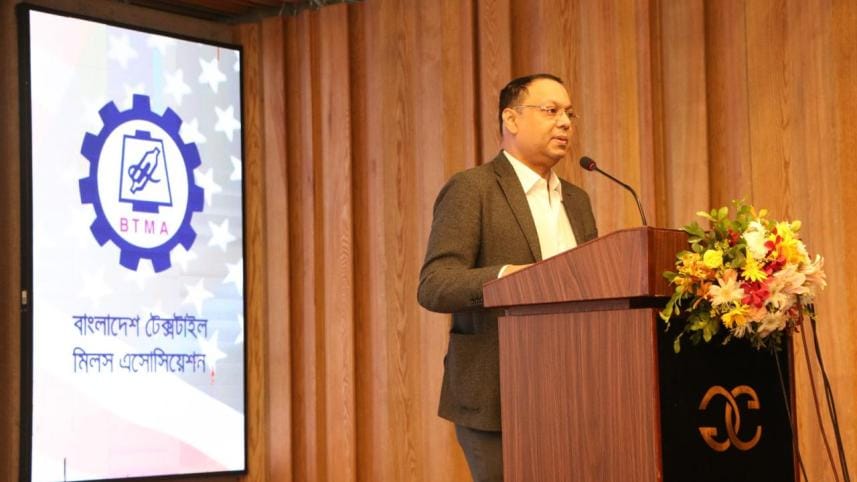Increase imports of US goods to reduce trade gap: textile millers

Textile millers and garment exporters today urged the government to increase imports from the US market in order to reduce the trade imbalance between Bangladesh and the United States.
They made the call at a roundtable on "US Tariffs on Bangladesh's Exports: Reciprocal Strategies and Way Forward for Negotiations," organised by the Bangladesh Textile Mills Association (BTMA) at Gulshan Club in Dhaka.
Showkat Aziz Russell, president of the BTMA, proposed leveraging Bangladesh's status as a major importer of American cotton by manufacturing cotton-based garments for duty-free access to the US market.
He also called for robust government support and greater foreign direct investment (FDI) to create employment and enhance competitiveness in the textile sector.
In his keynote, Masrur Reaz, chairman of Policy Exchange Bangladesh, underscored the significance of the recent 90-day deferment on new US tariffs and suggested that stakeholders move beyond diplomacy alone and pursue market-based solutions.
"Bangladesh must act decisively—by engaging buyers and brands, increasing US content in exports, and assessing sector-specific impacts—to secure long-term access to the US market," said Reaz.
The speakers suggested increasing US content in manufactured goods to 20 percent to qualify for reduced tariff rates, and establishing US cotton storage hubs in Bangladesh to streamline imports and eliminate logistical barriers.
They also recommended investing in infrastructure, industrial capacity, and human capital to boost productivity and global market readiness, and encouraging US investment in diversified sectors to expand export offerings.
Including the US private sector in ongoing free trade agreement (FTA) dialogues alongside government efforts was also recommended.
Participants expressed cautious optimism that evolving global trade realignments could open new doors for Bangladesh. However, they warned that inaction could lead to long-term setbacks.
The US remains Bangladesh's largest export destination, accounting for nearly 20 percent of total readymade garment exports, valued at $7.34 billion in 2024.
Hafizur Rahman, administrator to the Federation of Bangladesh Chambers of Commerce and Industry; Anwar Hossain, vice chairman of the Export Promotion Bureau and administrator to the Bangladesh Garment Manufacturers and Exporters Association, attended the event.
Anwar-ul Alam Chowdhury, president of the Bangladesh Chamber of Industries; Abdul Hai Sarker, president of the Bangladesh Association of Banks; and Shamim Ahmed, president of the Bangladesh Plastic Goods Manufacturers and Exporters Association, also attended.
Mohibuz Zaman, managing director of ACI Healthcare Ltd, and Mohammad Helal Mia, chairman of Amanat Shah Group, were also present.



 For all latest news, follow The Daily Star's Google News channel.
For all latest news, follow The Daily Star's Google News channel.
Comments